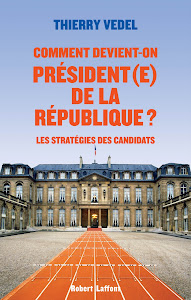You just bought a new computer and you thought it might be a good idea to give your old one to some association for re-use in a developing country (you own modest contribution to bridging the digital gap)?
So please READ THIS BEFORE.
This is a report published last week by the Basel Action Network (BAN), an international network of activists seeking to prevent the globalization of the toxic chemical crisis.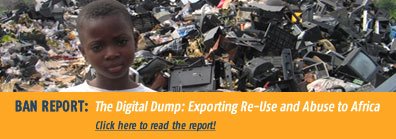
As BAN researchers found in Lagos (Nigeria), “almost all of the discarded imported electronic waste is thrown into formal or informal dumpsites, all of which are unlined, unmonitored, close to the groundwater and routinely set afire”.
“The dumped and burned electronic equipment contains toxic lead, cadmium, barium, beryllium, mercury, and brominated flame retardants, and some of these chemicals become more hazardous when burned”. The impacts on environment and health might be disastrous.
“Re-use is a good thing, bridging the digital divide is a good thing, but exporting loads of technotrash in the name of these lofty ideals and seriously damaging the environment and health of poor communities in developing countries is criminal,” said Jim Puckett, coordinator of BAN who led the field investigation.
Besides the public health and environmental issues, exporting used computers also raises some privacy concerns. Many of the hard drives recovered from computers in Lagos contained a great deal of confidential information, including performance management scores.
Donner son vieil ordinateur pour qu'il soit réutilisé dans un pays en voie de développement est en principe une bonne idée. Sauf qu'il finira sans doute dans une décharge d'Afrique ou de Chine, où il polluera et intoxiquera l'environnement.
Pour en savoir plus Lisez ce rapport édifiant du BAN (Basel Action Network).
dimanche 30 octobre 2005
The digital dump / la décharge numérique
samedi 29 octobre 2005
When all love is dead
 "Sit down, sit down. Don't go anywhere. Sit. There's a candle on the table and Lauren (we will call her Lauren) is in the kitchen, washing dishes. She speaks to you over her shoulder. She's wearing her short skirt, the one you like, but her hair's falling across her face in an ugly way. Her eyes look hard. You're sitting there as she speaks but you're not listening for the first long time - you're listening to her voice, the sweet and mumbly flow, the voice you love to hear close-up, right in your ear, marble-mouthed, - but you're not listening to the words. And then you begin to hear, over the tapwater shhh, over the scrub scrub of her rubber gloves, over the sighs of the backing vocals in the corner - you begin to hear what she's saying and you realise she is telling you off. You deserve it. It's a rage that sounds for a moment like a whine, then sad sad sad, then like someone deep in love. And then like all three and neither. Because she's gone cool again, sharp and collected, back straight, and the only soft thing over there, at the other end of the room, is a voice and a pair of lips. And they're not coming closer".
"Sit down, sit down. Don't go anywhere. Sit. There's a candle on the table and Lauren (we will call her Lauren) is in the kitchen, washing dishes. She speaks to you over her shoulder. She's wearing her short skirt, the one you like, but her hair's falling across her face in an ugly way. Her eyes look hard. You're sitting there as she speaks but you're not listening for the first long time - you're listening to her voice, the sweet and mumbly flow, the voice you love to hear close-up, right in your ear, marble-mouthed, - but you're not listening to the words. And then you begin to hear, over the tapwater shhh, over the scrub scrub of her rubber gloves, over the sighs of the backing vocals in the corner - you begin to hear what she's saying and you realise she is telling you off. You deserve it. It's a rage that sounds for a moment like a whine, then sad sad sad, then like someone deep in love. And then like all three and neither. Because she's gone cool again, sharp and collected, back straight, and the only soft thing over there, at the other end of the room, is a voice and a pair of lips. And they're not coming closer".
This is what said Sean (from the blog Said the Gramophone) when listening to "All Love is Dead" by Blanket. A nice piece of writting, indeed.
It seems that Blanket episodically play in London and Brighton. You may want to visit Blanket's blog HERE or Blanket's web site THERE.
vendredi 28 octobre 2005
Estonia did it!
On October 16, Estonia was the first country to open its local elections to Internet voting on a nationwide level. (The UK also introduced remote e-voting in 2003 but only in a limited number of pilots).
Election officials said only 9,317 people out of 1.06 million registered voters opted to vote online. This comes as a disappointment since more than 50% of the population is said to use the internet (with only 30% of Estonian homes having an internet connexion).
If the turnout of internet voting was so low, some people said, it is because many Estonians were not equipped with the device needed to read the ID smart card required to cast online votes. This ID smart card has been mandatory since 2002 and is also used to have access to different administrative services, and even commercial services such a bank’s – something which sounds a little frightening, no? (I am French, don't forget).
One of the 9,137 happy Estonians
who cast an online vote (Prime Minister Andrus Ansip)
Some experts like Thad Hall, a political scientist at the University of Utah
and co-author of Point, Click & Vote. The Future of Internet Voting (Brookings Institution Press, 2004) said that Estonia has ‘the perfect population size to do something like this". Which I don’t know how to interpret.
Others are more sceptical. On his very nice blog, Jason Kitcat,
an online community consultant, writes that the Estonian system seems to be quite solid from a technical point of view, but it is unclear how it might prevent some kind of votes tampering. Generally, Jason thinks that there are not many reasons "for justifying the introduction of a whole new system which opens the door to wide-scale undetectable fraud while costing the tax payer vast sums of money. The risks simply do not outweigh the benefits.” (Did I quote it right, Jason?).
More info in English:
- A report on the Estonian online local elections by CNET News.com, including a very astute interactive tool to read more storie about issues related to e-voting.
- A full description of the Estonian E-voting system from the Estonian National Electoral Commission.
Cet article de Libération de l’ami Christophe Alix (qui vous conduira vers d’autres articles du même).
Tags: vote - Estonie
Thèmes : Vote électronique
mardi 25 octobre 2005
The post it campaign
Something new recently happened in Italian politics. The different political parties part of the left-wing coalition L’Unione decided to have a primary election in order to choose the coalition leader for the upcoming general elections. The primary took place on October 16, 2005 and it is reported that more than 4 million Italian people, including Italian people living abroad, cast their vote.
As expected Prodi, the center-left candidate who also is a former European Commission president, won 74.4 percent of the vote. Among the different candidates, one of them , Fausto Bertinotti, the veteran leader of the Partito della Rifondazione Comunista run an attractive on line campaign, which I would call the “post it campaign”. Just take a look at Faustino’ web site by clicking on the picture below.
Fausto Bertinotti web site's homepage. Click to explore
There is a lot on Faustino’s web site, including many videos of the campaign trail, a bulletin board to express opinions, an animated cartoon and a blog. It is interesting to see how much Faustino personalized his campaign : the main objectives of his manifesto all start by a “I voglio” (I want). The old communist symbolic is no longer apparent and it is almost by accident that you find out the sickle and the hammer.
Faustino only won 14.6 percent of the vote. Whether he would have got less or more without his post it campaign is an open question.
Thanks to Sara Bentivegna, University of Rome, for letting me know this site.
Tags: elections - Italy
lundi 24 octobre 2005
Revolutionary Tides
If you are in Stanford University's neighbourhood, pay a visit to the exhibition Revolutionary Tides at the Cantor Arts Center. This exhibition presents more than one hundred political posters from WWI through the year of the fall of the Berlin wall in 1989, and covers such diverse settings as New Deal America, the Soviet Union of Stalin’s Five-Year Plans, China's Cultural Revolution, the protest movements of the 1960s, and Ayatollah Khomeni’s Iran. To take a look at the posters, click HERE
To take a look at the posters, click HERE
1905: Road to October by Valentina Kulagina (1929) Archives of the Hoover Institution, Stanford
"If the modern era is the era of crowds, as Gustave Le Bon remarked in his celebrated 1895 study on crowd psychology, to what extent is this still true in today’s information based society with its proliferation of virtual forms of assembly and political participation ?
Has the age of the political posters passed with the rise of media that no longer require mass assemblies in city streets and public squares?
If so, what are the consequences for political action and representative democracy?" (Excerpt from the exhibition presentation).
mercredi 19 octobre 2005
Citations politiques/ political quotes
Je suis actuellement en colloque à Oxford et, pour l'instant, il m'est difficile de tenir à jour le blog. Mais d'ici quelques jours, je reviens avec quelques billets que j'ai préparés pour vous.
En attendant, vous pouvez jeter un coup d'oeil à ce
Dictionnaire en ligne des citations politiques conçu par Damien Bégoc. La bonne idée, c'est de proposer des entrées par auteur (380 au total) et par mot-clef (700). Dommage que les citations ne soient pas "sourcées" précisément (l'ouvrage dont elles sont issues est bien indiqué mais ni l'édition utilisée, ni la date). Aussi, je n'aime pas trop la pub trop ominprésente sur ce site. Mais bon, il faut bien financer ce site dune manière ou d'une autre...
I am just busy, attending a conference in Oxford. But I have prepared some fresh posts for you, which I will publish in a few days.
Meanwhile, those of you who understand French can take a look at this dictionnary of political quotations designed by Damien Bégoc. Not fully academic but rather pleasant. A bientôt!
dimanche 9 octobre 2005
Présidentielle en tous genres
Nous sommes à 18 mois de la prochaine élection présidentielle et les sites web, partisans ou indépendants, ainsi que les blogs, officiels ou officieux, consacrés à celle-ci se multiplient. Il ne sera pas facile d'en faire l'inventaire exhaustif, mais j'essaierai quand même d'en tenir une petite chronique sur ce blog. www.presidentielle-2007.net: A vendre!
www.presidentielles-2007.org (sans l'accent!)
Parmi les nouveaux sites récemment apparus, une dépêche de l'AFP du 7 octobre à 20h08 nous apprend la naissance de "www.présidentielles-2007.org, lancé Jérôme Rivière, député UMP des Alpes-Maritimes. (...) Ce site se propose de participer à une plus grande transparence des parrainages à la prochaine élection présidentielle en incitant les citoyens à demander à chaque élu local le nom de son filleul".
"Chaque électeur trouvera sur notre site une série de lettres téléchargeables à destination des élus qui ont le pouvoir de signer une liste de présentation d'un candidat. Ils n'ont plus qu'à l'imprimer et à l'envoyer à leur élu pour demander des comptes", explique Franck Viano, rédacteur en chef du quotidien internet d'information locale Nice Première et concepteur du projet au côté du député Jérôme Rivière (UMP).
L'électeur trouvera également sur le site l'ensemble des dispositions législatives sur le parrainage des candidats à la présidentielle mais également un formulaire que l'internaute, une fois la réponse des élus obtenue, pourra adresser à la presse locale.
"L'idée est née du constat que la législation actuelle sur les parrainages est floue et peut prêter le flan à la polémique, comme en 2002. La publicité des parrainages n'intervient qu'une fois l'élection passée et de façon incomplète", observe encore M. Viano.
Actuellement, seuls les noms de 500 parrains tirés au sort sont publiés au Journal officiel. Cinq cents est le nombre minimum, mais il est largement dépassé par la plupart des candidats. Pour prendre connaissance de l'ensemble des signatures, il faut se rendre au Conseil constitutionnel. Pour Franck Viano, qui précise ne pas être du même bord politique que M. Rivière, le lancement de www.présidentielles-2007.org n'est en rien une "démarche politique" mais un outil de "lobbying citoyen".[Fin de citation de la dépêche AFP]
Petite visite du site (que je n'ai pas trouvé immédiatement car l'URL mentionnée par l'AFP comprenait par erreur un accent - il me semblait pourtant qu'il était désormais possible d'utiliser des URL avec accent): c'est sobre et succinct. Les objectifs du site - qui se présente comme un observatoire national des parrainages - sont très brièvement indiqués, beaucoup moins bien que dans la dépêche AFP. Et absolument rien sur les gens qui sont à l'origine de cette initiative.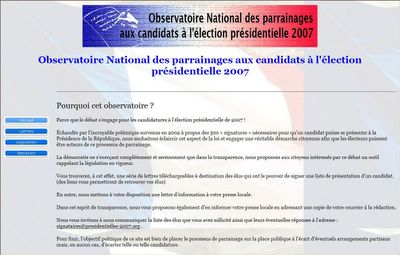
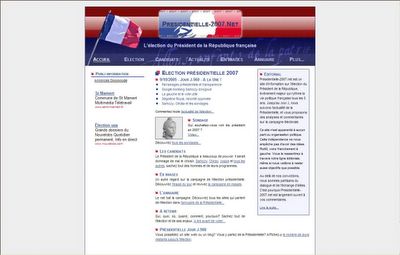
Pages d'accueil de presidentielles-2007.org (sans l'accent!) et de presidentielle-2007.net
Dans la famille présidentielle-2007, voici maintenant le blog www.présidentielle-2007.net. A part les couleurs bleu-blanc-rouge, très différent du précédent. Lancé en juin 2005, ce blog, conçu par des gens "plutôt, voire franchement, à gauche", se propose de suivre la campagne en proposant des infos (et une image quotidienne) sur l'élection, les candidats et leurs programmes, l'actualité de la campagne au jour le jour. Pour l'instant, seule cette dernière rubrique est vraiment fournie, les autres étant un peu maigrelettes.
En me baladant sur ce blog, une rubrique, intitulée A vendre, m'a intrigué. "Tout a un prix, y-est-il écrit, Presidentielle-2007.net aussi !"Vous êtes un mouvement, un parti politique, un candidat, un site d'actualité? L'achat de Presidentielle-2007.net vous assurera une excellente visibilité sur le net. Beaucoup plus efficace et moins cher qu'un spot TV ou qu'une campagne d'affichage". Et si vous achetez le nom du site, on vous offrira en cadeau les noms presidentielle-2007.org et présidentielle-2007.info.
On croyait être sur un blog de citoyens soucieux de participer au débat politique et on s'aperçoit qu'on a affaire à des marchands...
vendredi 7 octobre 2005
Ségolène m'écrit ! (mais pas Nicolas)
Depuis fin septembre, des milliers d'internautes (plus de 300 000 paraît-il) ont reçu un mail de Nicolas Sarkozy, premier essai de e-marketing politique à grande échelle en France.
Cela a ému pas mal de monde. On peut lire à ce sujet l'article du 27/09 de Libération qui explique l'opération ICI et, surtout, l'enquête très approfondie de Bertrand Lemaire sur le blog de Le Monde informatique LA
qui s'interroge sur sa légalité au regard de la législation anti-spam en vigueur depuis la loi sur la confiance dans l'économie numérique du 21 juin 2004 (voir la fiche réalisée par la Commission nationale Informatique et libertés PAR LA).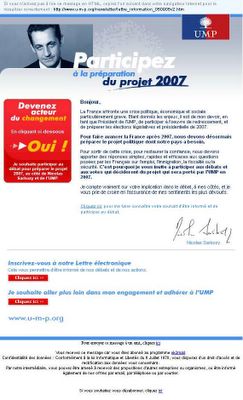

Le sarkospam et une image prise sur http://segolene.hautetfort.com
Bon, moi, je ne dois pas être dans les "bons fichiers", car je n'ai rien reçu de la part de Nicolas. En revanche, Ségolène, elle, m'a écrit:
"Bonjour, bonsoir,
Voulez-vous vous instruire et participer à la vie politique de notre pays ?
Ce blog est fait pour vous. http://segolene.hautetfort.com
Vous ne voulez pas en entendre parler? Vous êtes outré(e) par ce mail que vous jugez "rentre dedans"? Surtout écrivez le moi. Vous serez instantanément banni(e) de cette liste et vous ne recevrez plus jamais aucun message des animateurs, ni pour votre anniversaire, ni à Noël, jamais.
Vous le regretterez très vite, je le sais, mais ce sera trop tard. Sauf, évidemment, si vous conservez ce mail, "au cas où". Je vous comprends, ça m'horripile de recevoir des messages non sollicités.
Un dernier mot: le blog http://segolene.hautetfort.com, l'adresse mail segolene2007@gmail.com, tout ça n'a rien à voir avec l'équipe de Ségolène Royal, ni elle, ni personne. C'est juste moi, et quelques amis, qui avons décidé de nous battre pour qu'elle devienne notre prochaine Présidente de la République, qu'elle le veuille ou non.
Bien à vous,
Kissykol
de l'équipe de http://segolene.hautetfort.com"
J'ai jeté un coup d'oeil: c'est marrant et plutôt bien fait. Et, confirme une tendance apparue dès l'élection présidentielle de 2002: l'internet favorise des approches plus ludiques de la politique. Ce qui me semble être une bonne nouvelle, non?
mercredi 5 octobre 2005
I'll be back soon
Une méchante grippe, la préparation de la présentation du rapport TV accross Europe de l'Open Society Institute (pour lequel j'ai rédigé le chapitre France), mon rapport d'activité biennal et un papier à terminer sur « The internet in French elections » pour un séminaire de l’Oxford Internet Institute...
Je n’ai pas beaucoup de temps en ce moment pour tenir à jour le blog. Mais, restez en ligne, je reviens dans quelques jours.

More to come!
The preparation of the launch of the TV across Europe report, an initiative of the Open Society Institute (for which I wrote the chapter on France), my activity report, a paper to finish on "The internet in French elections" for a seminar at the Oxford Internet Institute… and, in addition, I got the flu.
No need to say that I don’t have much time to write on my blog. But please staytuned, I’ll be back soon.
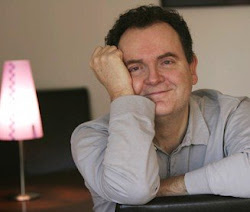%40claire+Garate+-+Copie.jpg)
